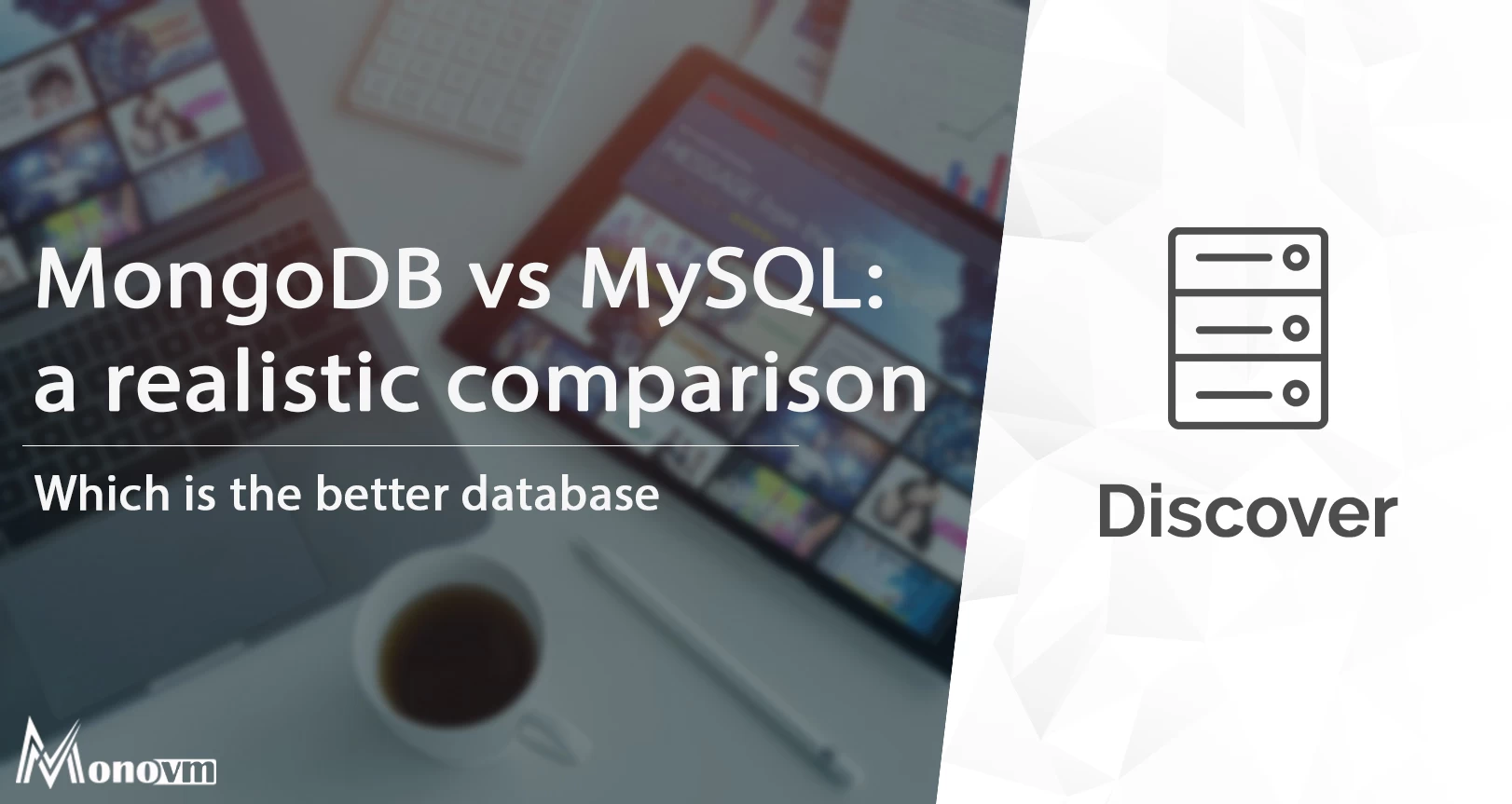List of content you will read in this article:
Databases are one of the most crucial components of any modern-day organization, storing and managing vast amounts of data vital to business operations. With the growing demand for efficient data management, various database management systems have emerged, each with unique advantages and disadvantages.
Two of the most popular database management systems, MongoDB and MySQL, are often compared to determine the better option. In this article, we'll explore the differences and similarities between MongoDB and MySQL to help you choose the best database for your needs.
What Are MongoDB and MySQL Used for?
MongoDB and MySQL are database management systems that enable users to store, organize, and retrieve data quickly and efficiently. MongoDB is a document-oriented database that stores data as collections of JSON-like documents. Its unique architecture allows for flexible and scalable data management, making it a popular choice for storing unstructured data such as social media feeds, geospatial data, and IoT data. MongoDB also features robust query functionality, allowing users to search and filter data based on complex conditions.
MySQL, on the other hand, is a relational database management system that stores data in tables and uses SQL (Structured Query Language) to manage data. MySQL is highly scalable and secure and provides many features, including support for triggers and stored procedures. It is an excellent choice for applications that require complex queries and transactions. MySQL is compatible with various programming languages and has become one of the most popular database management systems for web applications.
When Is MongoDB a Better Choice than MySQL?
- When dealing with large unstructured data: MongoDB's document-oriented architecture and dynamic schema make it an ideal choice for managing large amounts of unstructured data. It eliminates the need to define schemas upfront, saving time and reducing development costs.
- When scalability is a priority: MongoDB's horizontal scaling capabilities make handling large amounts of data easy without sacrificing performance. It's ideal for applications that require a high degree of scalability and flexibility.
- When working with geospatial data: MongoDB has built-in geospatial indexing and querying capabilities, making it an excellent choice for applications that require geospatial queryings, such as location-based services, logistics, and supply chain applications.
- When handling real-time data: MongoDB's support for real-time data and its ability to manage and access data quickly makes it an excellent choice for applications that require real-time analytics, such as social media analytics, financial trading, and gaming applications.
- When handling large-volume data transactions: MySQL can slow down when handling large transactions. MongoDB's document-oriented approach enables faster writes and reads on large data sets, making it an ideal choice for high-velocity transactional applications.
- When working with distributed databases: MongoDB's sharing and replication capabilities make it a better choice for distributed databases, where data is stored across multiple servers. It's easier to manage, scale, and replicate across multiple geographically dispersed data centers.
🎉🎉Get blazing-fast website performance and unparalleled control with our VPS hosting! Experience seamless scalability, robust security, and reliable support, all at an unbeatable price. Don't miss out on supercharging your online presence - buy our VPS hosting today!🎉🎉
When Is MySQL a Better Pick than MongoDB?
- When dealing with structured data: MySQL is better than MongoDB for handling structured data because it has a well-defined schema that allows for efficient querying and indexing.
- When data consistency is crucial: MongoDB uses a flexible document structure that allows for easy updates, but this flexibility can lead to inconsistent data. MySQL is a better choice when data consistency is crucial.
- When working with complex transactions: MySQL has built-in transaction support, whereas MongoDB does not. This makes MySQL a better choice when working with complex transactions that require atomicity, consistency, isolation, and durability (ACID).
- When scalability is not a major concern: MySQL is more suitable for smaller-scale applications that don't require horizontal scalability. MongoDB is better suited for large-scale applications that require massive data volumes and horizontal scaling.
- When using SQL-based reporting tools: Many business intelligence tools, such as Tableau and Power BI, are SQL-based, which makes MySQL a better choice for reporting and data analysis.
- When working with legacy systems: MySQL has been around for over 20 years and has a mature ecosystem of tools and libraries. If you're working with legacy systems, MySQL may be better than MongoDB, a relatively new database technology.
- When working with multiple data sources: MySQL is better than MongoDB when working with multiple data sources because it allows for easy integration with other databases, such as Oracle and SQL Server. MongoDB, on the other hand, is designed to work as a standalone NoSQL database.
Wrapping Up
MongoDB and MySQL are both excellent choices for different types of applications. MongoDB is ideal for applications that require scalability, flexibility, and efficient support for JSON data. MySQL, on the other hand, is a good choice for applications that require complex queries and transactions.
Ultimately, the choice between the two databases depends on the application's specific needs, and it is essential to evaluate the requirements carefully before making a decision. The right choice will result in a database system that meets the application's needs, provides high performance, and ultimately leads to a successful project.
- MongoDB is ideal for unstructured data, while MySQL is better suited for structured data.
- MongoDB is more scalable and flexible than MySQL, which is better for smaller projects.
- MySQL provides better transaction management and is more suitable for complex, mission-critical applications.
- MongoDB is better for agile development as it allows for faster iteration cycles, while MySQL requires a more rigid schema design.
People also read:

I'm fascinated by the IT world and how the 1's and 0's work. While I venture into the world of Technology, I try to share what I know in the simplest way with you. Not a fan of coffee, a travel addict, and a self-accredited 'master chef'.